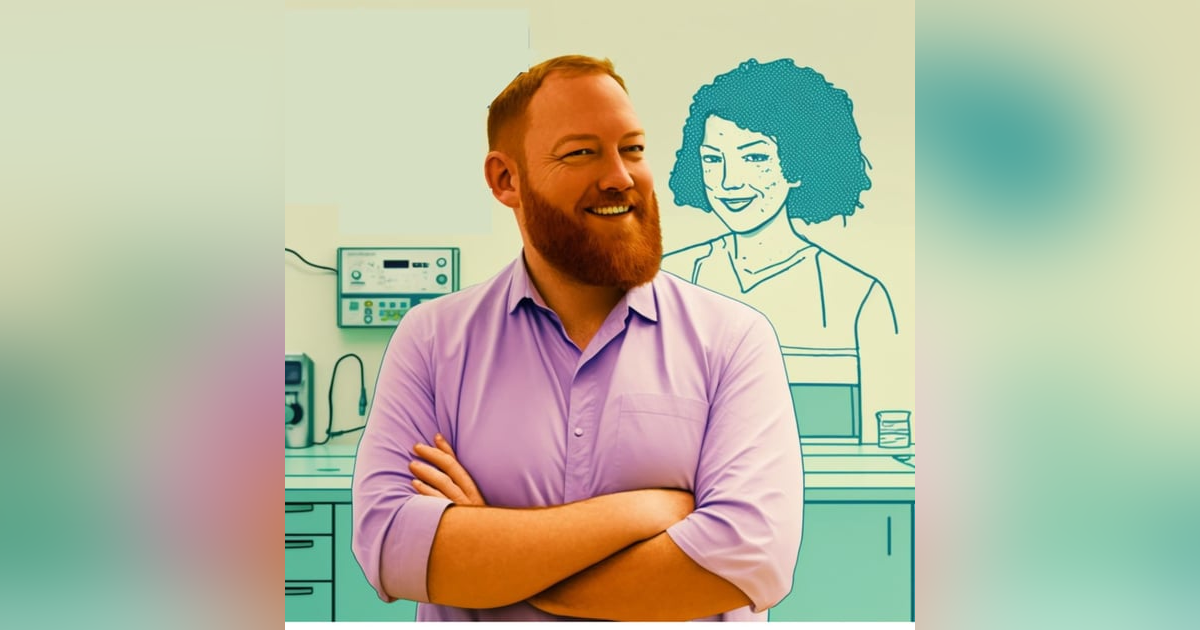#87: Breakdown to breakthrough, and how the blockchain and AI and will change veterinary science. With Dr Steve Joslyn

Dr Steve Joslyn is a specialist veterinary radiologist and tech enthusiast with more than two decades of experience consulting for referral, teaching, and general practice hospitals on four continents. Steve is highly regarded for his radiology work on designing imaging workflows and clinical 3D printing services, among other ground-breaking projects. Steve’s passion for technology and informatics led him to co-chair a joint American and European Radiology committee exploring the role AI has to play in veterinary diagnostic imaging. With his latest project, Vedi, Steve and his team have created a universal health record that locks patient data to an animal's existing microchip, revolutionizing the way veterinary data is collected and disseminated in an effort to fix what he sees as one of the biggest, yet insidious, problems in the industry today - the "patient-data disconnect."
In this episode, Dr Steve takes us on a tour of the possibilities, current and coming, that new technologies offer us in the veterinary space. We discuss artificial intelligence in veterinary practice, including the pitfalls to look out for, with a focus on where AI fits into the world of diagnostic imaging. Steve also gives some useful insights for anyone considering a residency, specifically a career in diagnostic imaging, and he shares candidly about his personal experience with a work-related breakdown episode. And of course, we dive deep into why our current ways of managing patient data are broken, and how we're going to fix it.
(Oh, and just for fun - Steve's bio was written by AI, and an AI image generator designed the episode artwork for this one!)
Time markers for our topics of discussion:
00:00 - 09:20: Steve’s bad decision / good story answer.
09:20 - 29:20: Is imaging a dream job? And the residency journey.
29:20 - 34:50: Breakdown to breakthrough, and the birth of Vedi.
34:50 - 39:20: Love the work, hate the job? What Steve learnt from his experience of a work-related mental breakdown episode.
39:30 - 60:00: A better way to manage our patient data.
60:00 - 60:09: Getting better at learning from our mistakes and the benefits of MnM rounds.
60:09 - 78:00: AI in veterinary science.
78:00 - 86:00: AI radiology interpretation software.
86:00 - 93:00: Steve’s podcast and book choices.
93:00 - 98:00: The one question.
Join the team for Vets For Climate Action for their epic hike on the Larapinta Trek from 28 June - 3 July 2023.
Go to thevetvault.com for show notes and to check out our guests’ favourite books, podcasts and everything else we talk about in the show.
If you want to lift your clinical game, go to vvn.supercast.com for a free 2-week trial of our short and sharp highly practical clinical podcasts.
We love to hear from you. If you have a question for us or you’d like to give us some feedback please get in touch via email at thevetvaultpodcast@gmail.com, or catch up with us on Instagram.
And if you like what you hear then please share the love by clicking on the share button wherever you’re listening and sending a link to someone who you think should hear this.






